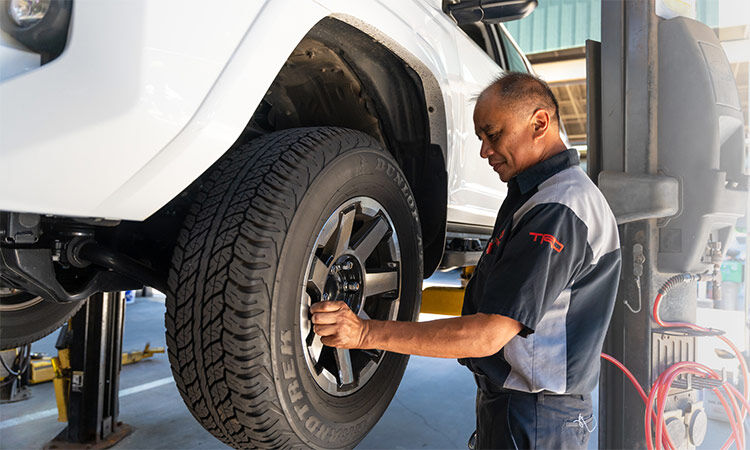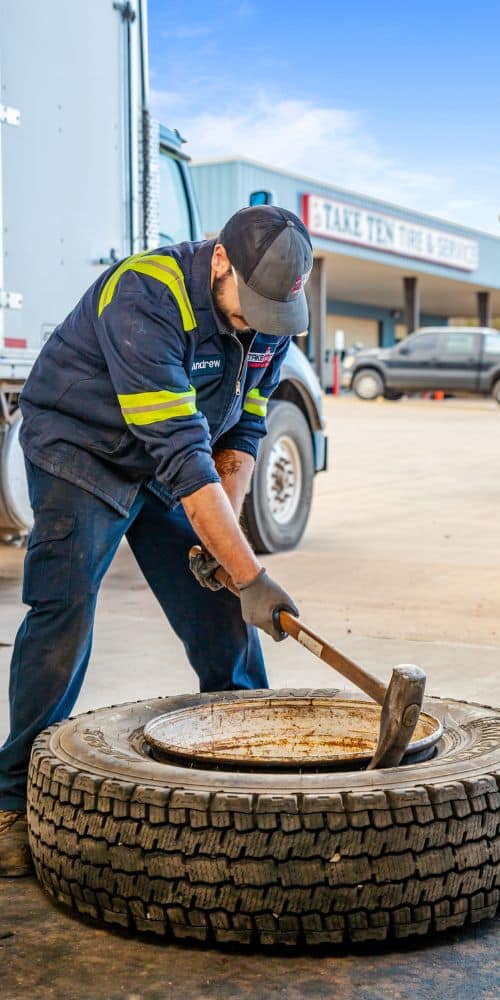Tire Service: The Influence of Climate Condition
When it pertains to ensuring ideal efficiency and safety and security when driving, recognizing the effect of climate problems on tire service is crucial. From scorching warmth to icy roads, each weather condition element can significantly affect tire performance and total driving experience. By delving right into the impacts of differing weather condition problems on tires, chauffeurs can obtain important understandings that might enhance their lorry's efficiency and durability. In this conversation, we will explore the intricate connection in between weather and tire solution, losing light on the importance of weather-specific tire maintenance methods and considerations.
Warm and Tire Performance
When exposed to high temperature levels, tires experience changes in efficiency that can dramatically influence automobile security and handling. The heat generated from extended driving or heat conditions triggers the tire rubber to soften, bring about decreased tread life and raised wear. As the rubber ends up being softer, the tire's hold when traveling decreases, impacting braking distances and overall grip. In extreme situations, excessive warmth can even cause tire blowouts, presenting an extreme security risk to the automobile and its passengers.

Cold Weather Results
Winter problems can have a significant impact on tire efficiency and safety. As temperature levels drop, tire rubber can solidify, resulting in lowered traction on icy or snow-covered roads. In winter, tires might also shed air pressure extra quickly, which can affect managing and fuel efficiency. In addition, chilly temperatures can create tire sidewalls to stiffen, raising the risk of damage from pockets or various other roadway dangers.
To mitigate the impacts of winter on tires, it is vital to routinely examine tire stress and inflate them to the producer's suggested degrees. Making use of winter season or all-season tires created for cold weather condition conditions can likewise enhance grip and grasp on icy or snowy roadways. Appropriate tire upkeep, consisting of regular evaluations for wear and damage, ends up being a lot more important during chillier months to make certain optimal performance and security.
Rainy Issues Influence
Tires with damaged footsteps are extra vulnerable to hydroplaning, where a layer of water develops up in between the tire and the road surface, leading to loss of traction. To fight this, chauffeurs ought to routinely evaluate their tires for appropriate tread depth and take into consideration investing in tires especially developed for wet problems.
Moreover, stormy weather condition can additionally lower visibility, making it challenging for vehicle drivers to see the road ahead clearly (GMC Tire Service). In such conditions, it is vital to change driving rates appropriately and keep a secure following distance to permit sudden stops. Correctly filled with air tires can also help in preserving control on wet roadways by giving far better handling and grip
Snow and Tire Safety And Security
Snow-covered roads present unique obstacles for chauffeurs, highlighting the significance of proper tire selection and try this website upkeep. When driving in snowy conditions, having the ideal tires can make a considerable difference in security and performance. Winter season tires are created with special rubber compounds and walk patterns to provide far better traction on snow and ice contrasted to all-season tires. The deeper treads and sipes of winter tires aid grip the roadway much better, minimizing the risk of slipping and sliding.

It is important to follow producer directions when installing and using tire chains to stop Continued damage to the tires and vehicle. By choosing the appropriate tires, maintaining appropriate inflation, and thinking about extra grip aids like tire chains, motorists can boost their safety and security when browsing snow-covered roadways.
Weather-Related Tire Maintenance
Weather-related tire maintenance includes an array of techniques intended at making certain ideal tire function and durability in various climate circumstances. One crucial facet of weather-related tire maintenance is tire stress law. Evaluating tire step consistently and changing tires when step wear reaches a specific depth is vital for keeping grip and security in adverse weather.
Verdict
In verdict, weather problems have a significant influence on tire efficiency and safety and security. From warm affecting tire stress and put on to cool climate decreasing grip, it is vital to think about the weather when maintaining and utilizing tires.
In this conversation, we will check out the complex partnership in between climate problems and tire solution, losing light on the importance of weather-specific tire maintenance practices and factors to consider.

Comments on “Drive with Self-confidence: GMC Tires Service at Morris Tires”